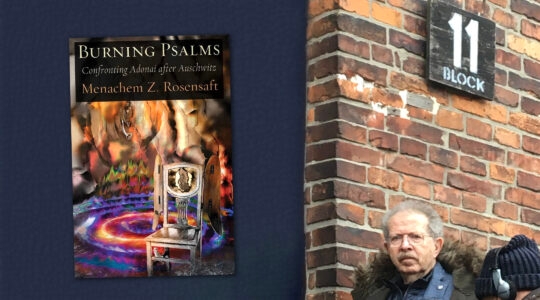After months of mounting criticism, M.J. Rosenberg says goodbye to the term "Israel Firster":
Not surprisingly, I have been under assault by various people on the right for my vigorous criticism of AIPAC and its role in promoting confrontation with Iran. My critics are particularly irked that I use the term Israel Firster to describe people who, in my opinion, put the interests of the Israeli right above everything else. This includes politicians such as Newt Gingrich, who as far as I know, is not Jewish. Watching the AIPAC conference convinced me that I must recommit myself to fighting those who are working to lead this country and/or Israel to war in Iran.
But I will do so without using the term "Israel Firster." The term was coined in 1960 by the late Abram Leon Sachar, founding President of Brandeis University, and a renowned Jewish historian (his son Howard Morley Sachar remains the greatest historian of contemporary Jewry) and was first used by the elder Sachar in a speech he delivered that year to a Zionist organization.
It has proven to be a distraction, allowing the pro-war lobby to focus on my choice of words rather than the substance of my arguments. I will not be using it again, for many reasons including the fact that some good people were genuinely offended by it. That was not my intention. My intention is to focus like the proverbial laser on the threat posed by war with Iran and the 45 year occupation.
Rosenberg — an AIPAC official in the 1980s and then a lead commentator for the pro-Oslo Israel Policy Forum — now writes for the liberal media watchdog Media Matters. His speciality: ripping into the Netanyahu government, AIPAC, neocon talking heads, GOP politicians and religious conservatives, all of whom he accuses of trying to ignite a war with Iran. [UPDATE: I should add that Rosenberg is not shy about slamming Democratic lawmakers.]
But thanks to a report by Ben Smith in Politico, Rosenberg found himself increasingly under fire over his use of the term "Israel Firster," which critics argued echoed anti-Semitic claims about Jews having dual loyalties. The Center for American Progress was also fingered in Smith’s article, but the liberal think tank with strong ties to the Obama administration moved quickly to stop the use of such terms. Rosenberg, however, wouldn’t budge — and neither would Media Matters.
Now that everyone seems to have agreed to put "Israel Firster" to bed, perhaps we can turn to the right-wing equivalent: "anti-Israel."
Yes, calling someone an "Israel Firster" avoids substantive argument over the issues by calling into question the loyalty/patriotism of those on the other side of the issue. And yes, it also can play into the hands of those trafficking in negative stereotypes that have led to discrimination and violence against Jews in recent centuries.
But the same exact thing can be said to those on the right who seek to discredit left-wing Jews and Jewish groups by slapping them with the "anti-Israel" label.
Say their positions are naive and/or dangerous, argue that they are hurting Israel — but calling them "anti-Israel" is to question their motives and loyalty, and is effectively a play to shut down communal debate over a range of important issues. And, more importantly, in recent decades, the use of terms like "anti-Israel" has led to as much bullying and violence, probably even more, than the use of terms like "Israel Firster" (see the Yitzhak Rabin assassination and the failed assassination plot against Shimon Peres, death threats and attacks against left-wing activists, and efforts to blackball some liberal groups from communal settings).
So to M.J. Rosenberg, we say: It’s about time.
To many of the commentators who led the charge against him, we say: We’re still waiting.
And, finally, to the centrist Jewish organizations who publicly called on Media Matters and CAP to get their acts together … we assume that going forward they will be equally vigilant in calling out those questioning the loyalty of Jewish left-wingers.
JTA has documented Jewish history in real-time for over a century. Keep our journalism strong by joining us in supporting independent, award-winning reporting.





